Throughout history, the humble peanut has played a significant role in various cultures around the world. Known for its versatility and nutritional benefits, the peanut is not just a popular snack but also an essential ingredient in many cuisines. In the Arab world, the peanut holds a special place, contributing to a range of delicious dishes and traditional recipes. Let’s delve into the fascinating world of peanuts in Arabic cuisine and explore the diverse ways in which this nut is used to create flavorful and satisfying meals. In Arabic cuisine, the peanut is a versatile ingredient that adds a unique flavor and texture to a wide range of dishes. From savory appetizers to hearty main courses and even sweet desserts, peanuts are utilized in various forms to enhance the taste and aroma of traditional Arabic recipes.
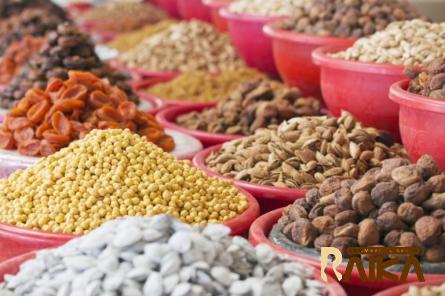
.
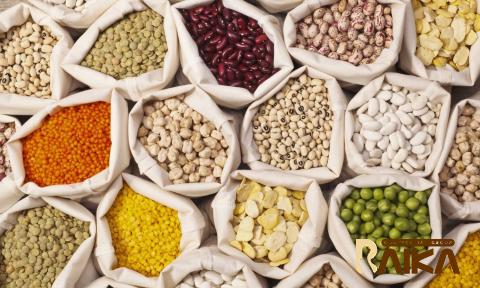 One of the most common ways peanuts are used in Arabic cuisine is in nut mixes and snacks. Roasted peanuts seasoned with aromatic spices such as cumin, coriander, and chili powder are a popular choice for serving with drinks or as a quick and satisfying snack. The crunchy texture and nutty flavor of roasted peanuts make them an irresistible treat for many in the Arab world. Peanuts are also a key ingredient in many traditional Arabic salads and appetizers. Crushed peanuts are often sprinkled on top of salads for added crunch and a nutty flavor. In dishes like fattoush, a popular Middle Eastern salad, peanuts are sometimes used to create a unique twist on the classic recipe, elevating the dish with their distinct taste. In Arabic cuisine, peanuts are not limited to savory dishes but also find their way into desserts and sweets. One of the most famous examples is the traditional Middle Eastern dessert, halawet el jibn, which features a rich and creamy peanut filling encased in a layer of sweet cheese. The combination of creamy cheese and nutty peanuts creates a decadent and indulgent treat that is beloved by many in the region. Another popular sweet treat that incorporates peanuts is the classic Arabic dessert, baklava. Layers of crispy phyllo dough are filled with a mixture of chopped nuts, including peanuts, and sweetened with syrup or honey to create a delicious and satisfying dessert that is enjoyed on special occasions and celebrations. Peanuts are also commonly used in savory dishes in Arabic cuisine, adding depth of flavor and richness to stews, curries, and rice dishes. In Moroccan cuisine, for example, peanuts are often added to tagines, slow-cooked meat and vegetable dishes that are bursting with fragrant spices and aromatic herbs. The addition of peanuts provides a nutty undertone that complements the other ingredients, creating a harmonious and flavorful dish. In Egyptian cuisine, peanuts are used in a popular street food dish called koshari, a hearty and satisfying mixture of rice, pasta, lentils, and chickpeas, topped with a tangy tomato sauce and crispy fried onions. Peanuts are sometimes sprinkled on top of the koshari to add an extra layer of crunch and flavor, making this dish a favorite among locals and visitors alike. The versatility of peanuts in Arabic cuisine extends to beverages as well. In some regions, peanuts are ground into a fine powder and used to make a traditional drink known as peanut milk. This wholesome and nutritious beverage is enjoyed for its creamy texture and nutty flavor, making it a popular choice for breakfast or as a refreshing drink on a hot day. The nutritional benefits of peanuts make them a valuable ingredient in Arabic cuisine. Packed with protein, fiber, and essential vitamins and minerals, peanuts are a healthy and nutritious addition to any meal.
One of the most common ways peanuts are used in Arabic cuisine is in nut mixes and snacks. Roasted peanuts seasoned with aromatic spices such as cumin, coriander, and chili powder are a popular choice for serving with drinks or as a quick and satisfying snack. The crunchy texture and nutty flavor of roasted peanuts make them an irresistible treat for many in the Arab world. Peanuts are also a key ingredient in many traditional Arabic salads and appetizers. Crushed peanuts are often sprinkled on top of salads for added crunch and a nutty flavor. In dishes like fattoush, a popular Middle Eastern salad, peanuts are sometimes used to create a unique twist on the classic recipe, elevating the dish with their distinct taste. In Arabic cuisine, peanuts are not limited to savory dishes but also find their way into desserts and sweets. One of the most famous examples is the traditional Middle Eastern dessert, halawet el jibn, which features a rich and creamy peanut filling encased in a layer of sweet cheese. The combination of creamy cheese and nutty peanuts creates a decadent and indulgent treat that is beloved by many in the region. Another popular sweet treat that incorporates peanuts is the classic Arabic dessert, baklava. Layers of crispy phyllo dough are filled with a mixture of chopped nuts, including peanuts, and sweetened with syrup or honey to create a delicious and satisfying dessert that is enjoyed on special occasions and celebrations. Peanuts are also commonly used in savory dishes in Arabic cuisine, adding depth of flavor and richness to stews, curries, and rice dishes. In Moroccan cuisine, for example, peanuts are often added to tagines, slow-cooked meat and vegetable dishes that are bursting with fragrant spices and aromatic herbs. The addition of peanuts provides a nutty undertone that complements the other ingredients, creating a harmonious and flavorful dish. In Egyptian cuisine, peanuts are used in a popular street food dish called koshari, a hearty and satisfying mixture of rice, pasta, lentils, and chickpeas, topped with a tangy tomato sauce and crispy fried onions. Peanuts are sometimes sprinkled on top of the koshari to add an extra layer of crunch and flavor, making this dish a favorite among locals and visitors alike. The versatility of peanuts in Arabic cuisine extends to beverages as well. In some regions, peanuts are ground into a fine powder and used to make a traditional drink known as peanut milk. This wholesome and nutritious beverage is enjoyed for its creamy texture and nutty flavor, making it a popular choice for breakfast or as a refreshing drink on a hot day. The nutritional benefits of peanuts make them a valuable ingredient in Arabic cuisine. Packed with protein, fiber, and essential vitamins and minerals, peanuts are a healthy and nutritious addition to any meal.
..
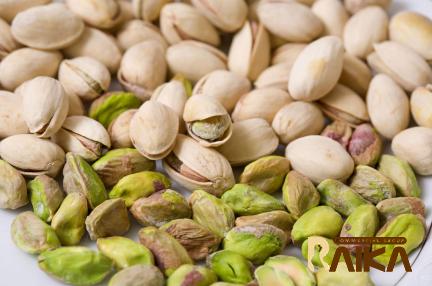 Whether roasted, ground, or used as a filling or topping, peanuts offer a range of health benefits that contribute to overall well-being and vitality. In conclusion, the peanut plays a significant role in Arabic cuisine, adding flavor, texture, and nutritional value to a wide variety of dishes. From savory snacks and appetizers to decadent desserts and wholesome beverages, peanuts are a versatile and indispensable ingredient in traditional Arabic recipes. Whether enjoyed on their own as a snack or incorporated into complex and flavorful dishes, peanuts continue to be a beloved and cherished component of Arab culinary traditions. So next time you’re craving a taste of the Middle East, consider incorporating peanuts into your cooking to experience the rich and diverse flavors of Arabic cuisine. The versatility of peanuts in Arabic cuisine knows no bounds, as these humble nuts are also used in condiments and dips to elevate the flavor profile of many dishes. One such example is the famous Middle Eastern dip, muhammara, which combines roasted red peppers, walnuts, breadcrumbs, olive oil, and, of course, peanuts. The addition of peanuts adds a rich and nutty undertone to the dip, balancing out the sweetness of the peppers and enhancing the overall experience of this flavorful condiment. Peanuts are also a common ingredient in marinades and sauces used in Arabic cooking. The nutty flavor of peanuts pairs well with a variety of spices and herbs, making them an excellent choice for adding complexity and depth to dishes. In dishes like satay, a popular Southeast Asian dish that has made its way into Arabic cuisine, peanuts are a key component of the marinade, bringing a unique and aromatic flavor to grilled meats and vegetables. The use of peanuts in Arabic cuisine goes beyond just flavor, as they also provide a satisfying crunch and texture to many dishes. Whether sprinkled on top of salads, mixed into rice dishes, or ground into a paste for sauces and dips, the crunch of peanuts adds a delightful element that enhances the overall dining experience.
Whether roasted, ground, or used as a filling or topping, peanuts offer a range of health benefits that contribute to overall well-being and vitality. In conclusion, the peanut plays a significant role in Arabic cuisine, adding flavor, texture, and nutritional value to a wide variety of dishes. From savory snacks and appetizers to decadent desserts and wholesome beverages, peanuts are a versatile and indispensable ingredient in traditional Arabic recipes. Whether enjoyed on their own as a snack or incorporated into complex and flavorful dishes, peanuts continue to be a beloved and cherished component of Arab culinary traditions. So next time you’re craving a taste of the Middle East, consider incorporating peanuts into your cooking to experience the rich and diverse flavors of Arabic cuisine. The versatility of peanuts in Arabic cuisine knows no bounds, as these humble nuts are also used in condiments and dips to elevate the flavor profile of many dishes. One such example is the famous Middle Eastern dip, muhammara, which combines roasted red peppers, walnuts, breadcrumbs, olive oil, and, of course, peanuts. The addition of peanuts adds a rich and nutty undertone to the dip, balancing out the sweetness of the peppers and enhancing the overall experience of this flavorful condiment. Peanuts are also a common ingredient in marinades and sauces used in Arabic cooking. The nutty flavor of peanuts pairs well with a variety of spices and herbs, making them an excellent choice for adding complexity and depth to dishes. In dishes like satay, a popular Southeast Asian dish that has made its way into Arabic cuisine, peanuts are a key component of the marinade, bringing a unique and aromatic flavor to grilled meats and vegetables. The use of peanuts in Arabic cuisine goes beyond just flavor, as they also provide a satisfying crunch and texture to many dishes. Whether sprinkled on top of salads, mixed into rice dishes, or ground into a paste for sauces and dips, the crunch of peanuts adds a delightful element that enhances the overall dining experience.
…
 Furthermore, peanuts are a versatile ingredient that can be incorporated into both traditional and modern Arabic recipes. Chefs and home cooks alike are constantly experimenting with new ways to showcase the flavor and versatility of peanuts in their cooking. From innovative fusion dishes that blend Arabic and international flavors to creative reinterpretations of classic recipes, peanuts continue to inspire culinary creativity and exploration in the Arab world. The widespread availability and affordability of peanuts also make them a popular choice for home cooks looking to create delicious and satisfying meals for their families. With a simple bag of peanuts, home cooks can easily whip up a variety of dishes that are nutritious, flavorful, and sure to please even the most discerning palates. In addition to their culinary uses, peanuts also hold cultural significance in many Arab societies. In some cultures, peanuts are a symbol of prosperity and good fortune, often served during festive occasions and celebrations to bring luck and blessings to the household. The ritual of sharing peanuts with guests and loved ones is a gesture of hospitality and warmth that reflects the generous spirit of Arab hospitality. In conclusion, the peanut holds a special place in the rich tapestry of Arabic cuisine, contributing to a diverse array of dishes that are beloved for their flavor, texture, and nutritional value. Whether enjoyed as a snack, incorporated into savory dishes, or used in sweet treats and beverages, peanuts continue to be a staple ingredient in the culinary traditions of the Arab world. So, the next time you find yourself craving a taste of the Middle East, consider incorporating peanuts into your cooking to experience the depth and richness of Arabic cuisine. Whether you’re a seasoned chef or a home cook looking to experiment with new flavors, peanuts are sure to inspire and delight your taste buds with their unique and versatile qualities. Embrace the heritage and flavors of the Arab world by adding peanuts to your culinary repertoire and savor the rich and diverse culinary traditions that have stood the test of time.
Furthermore, peanuts are a versatile ingredient that can be incorporated into both traditional and modern Arabic recipes. Chefs and home cooks alike are constantly experimenting with new ways to showcase the flavor and versatility of peanuts in their cooking. From innovative fusion dishes that blend Arabic and international flavors to creative reinterpretations of classic recipes, peanuts continue to inspire culinary creativity and exploration in the Arab world. The widespread availability and affordability of peanuts also make them a popular choice for home cooks looking to create delicious and satisfying meals for their families. With a simple bag of peanuts, home cooks can easily whip up a variety of dishes that are nutritious, flavorful, and sure to please even the most discerning palates. In addition to their culinary uses, peanuts also hold cultural significance in many Arab societies. In some cultures, peanuts are a symbol of prosperity and good fortune, often served during festive occasions and celebrations to bring luck and blessings to the household. The ritual of sharing peanuts with guests and loved ones is a gesture of hospitality and warmth that reflects the generous spirit of Arab hospitality. In conclusion, the peanut holds a special place in the rich tapestry of Arabic cuisine, contributing to a diverse array of dishes that are beloved for their flavor, texture, and nutritional value. Whether enjoyed as a snack, incorporated into savory dishes, or used in sweet treats and beverages, peanuts continue to be a staple ingredient in the culinary traditions of the Arab world. So, the next time you find yourself craving a taste of the Middle East, consider incorporating peanuts into your cooking to experience the depth and richness of Arabic cuisine. Whether you’re a seasoned chef or a home cook looking to experiment with new flavors, peanuts are sure to inspire and delight your taste buds with their unique and versatile qualities. Embrace the heritage and flavors of the Arab world by adding peanuts to your culinary repertoire and savor the rich and diverse culinary traditions that have stood the test of time.

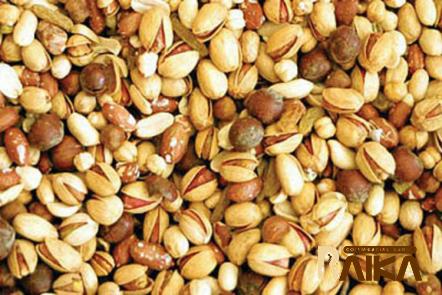
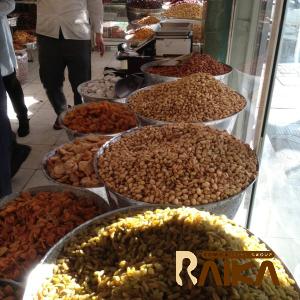
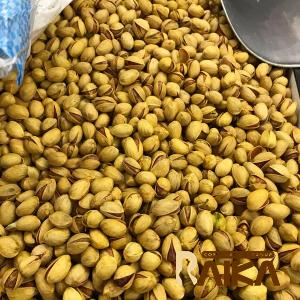
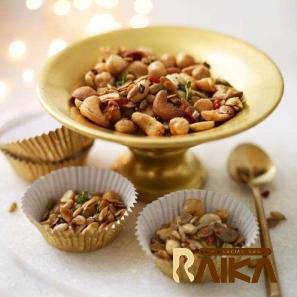
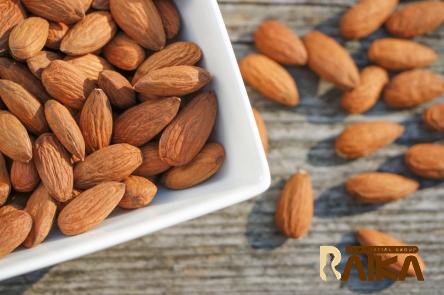
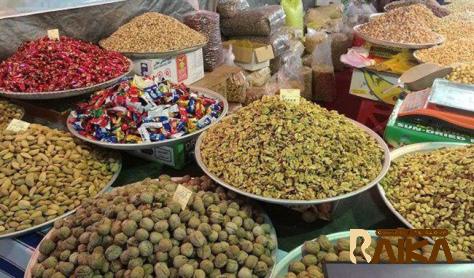
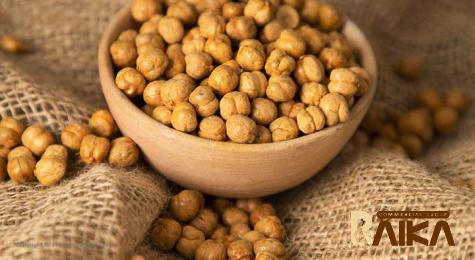
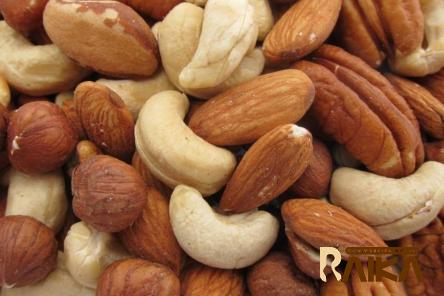
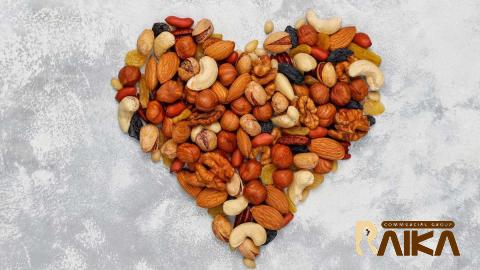
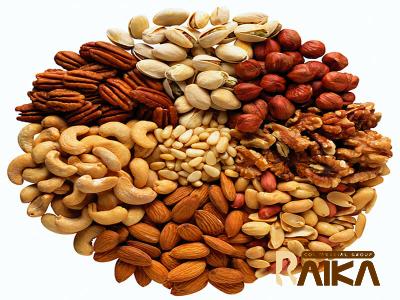
Your comment submitted.